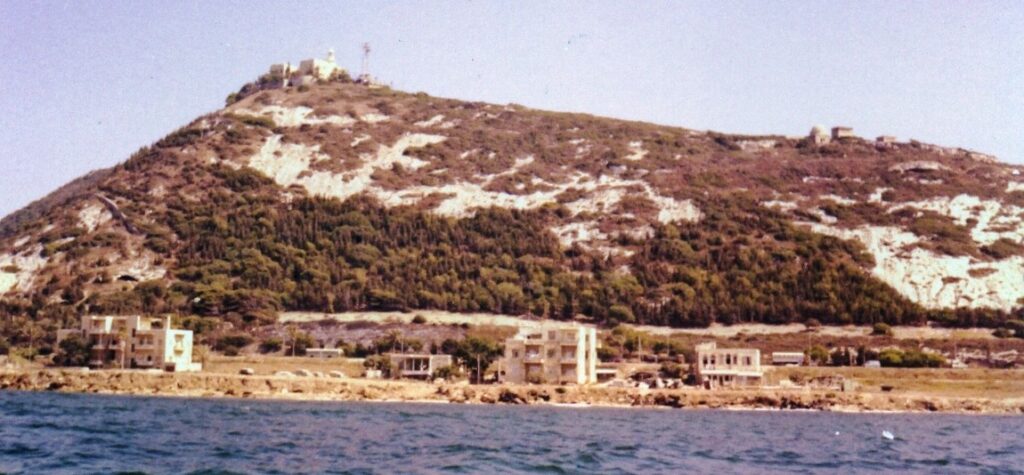“Engines Dead Slow Astern!” came the command from the captain on bridge. I repeated the command verbally and moved both handles of the Telegraph (an old-fashioned way to communicate engine requests from the bridge to the engine room) to the commanded position.
The deck vibrated slightly, as the two 1500 hp engines engaged and turned the propellers, providing reverse trust.
It took only two seconds, for the next command, quite in urgent tone, to be voiced: “Engines Stop!!!” The telegraph promptly indicated the command to the engine room, and the engines disengaged. Unfortunately, too late. The props entangled in a mooring steel cable of a neighboring fishing trawler.
What a great way to start our trip abroad!
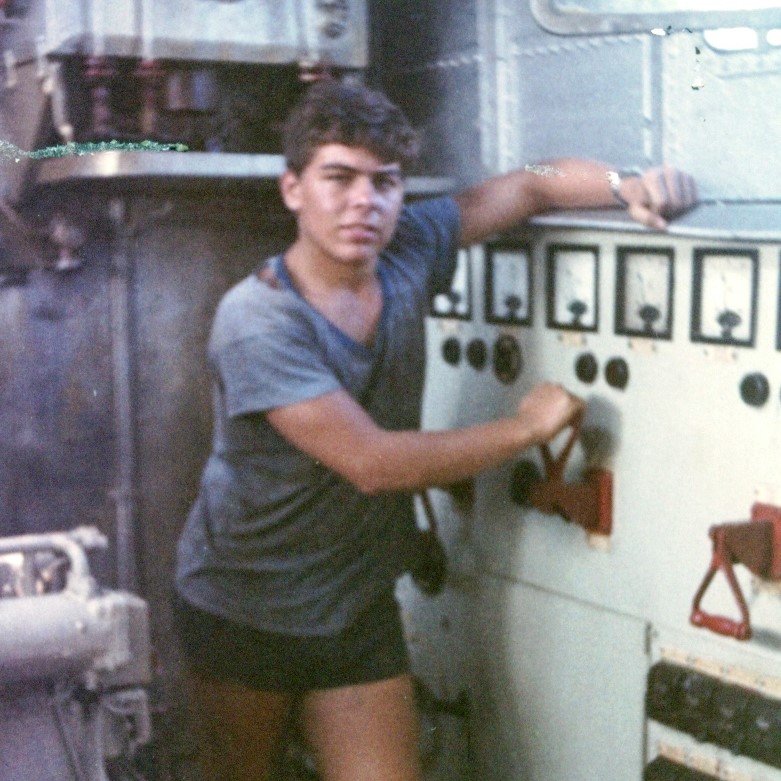
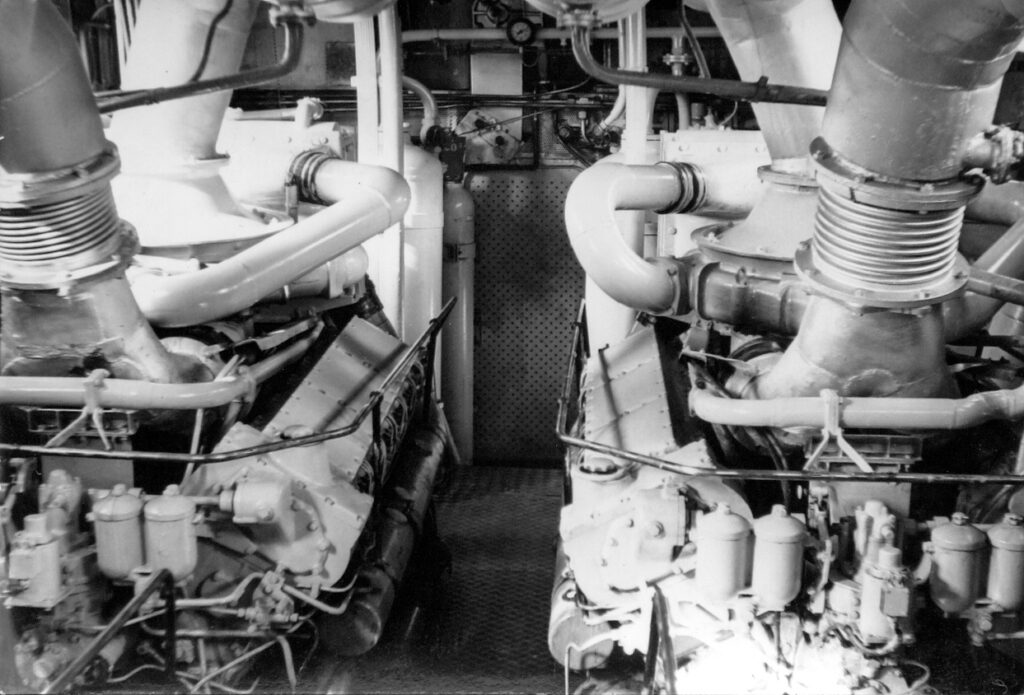
Our first trip started off the wrong foot (or should I say blade?). These voyages abroad on board of the school’s ship “Tzo’ar”, (an old Coast Guard patrol boat) were a part of my training in Ktziney Yam, the Marine Academy. This particular one took place in the summer of 1971. The destination was Cyprus, Rhodes and Greece, including some of the Greek Islands. A great way to spend part of the summer vacation, and we all looked forward to the adventure.
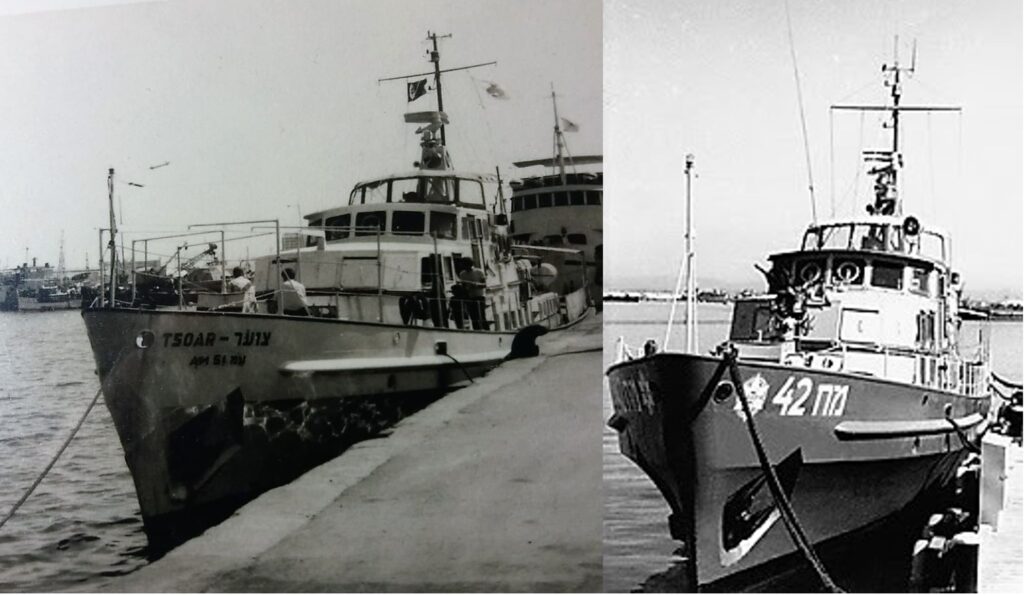
For some unknown to me reason, the Chief Engineer decided that I am capable to serve as his deputy. It meant that I would share with him the shifts – 4 hours on, 4 hours off. It also meant that I will get payment for the effort. A whole sum of $10!!! It was a substantial amount for me, because then Israel’s economy was very different than it is today. One could only get foreign currency at the black market at an exorbitant price, that I certainly could not afford.
So, as the deputy Chief Engineer, I came earlier to the ship, to prepare her for the voyage. Fueling, loading supplies and potable water, fixing a few malfunctions and warming the main engines, were some of my duties. Needless to say, that when we were ready to set sail, I was soaking sweat. We only had about two tons of potable water, hardly enough for the crew of more than 30 cadets. Obviously, showers were out of question.
The captain asked for a volunteer to dive and untangle the propeller, promising a shower afterwards. Obviously, I gladly jumped on the opportunity; being the deputy Chief Engineer helped too. Well, diving in the murky waters of the Kishon River, among dead fish, slime and effluents from the petrochemical industry of Haifa is not fun. Yet, it still would cool me off a little, and then, a shower!!
Half an hour later, after enjoying the promised shower, I assumed my position at the Telegraph on the bridge. This time the departure was eventless. The Carmel mountain slowly disappeared behind us, as we headed due North to Cyprus.
Wow, there is really some practical use to that awkward language called English they taught us all those years! People do speak English, and we were able to communicate with them our basic needs and wants. “How much does this cost?” and then, “I will pay you only this much” (usually half the asking price…). Be careful as you intend to cross the street! These guys drive on the wrong side of the road.
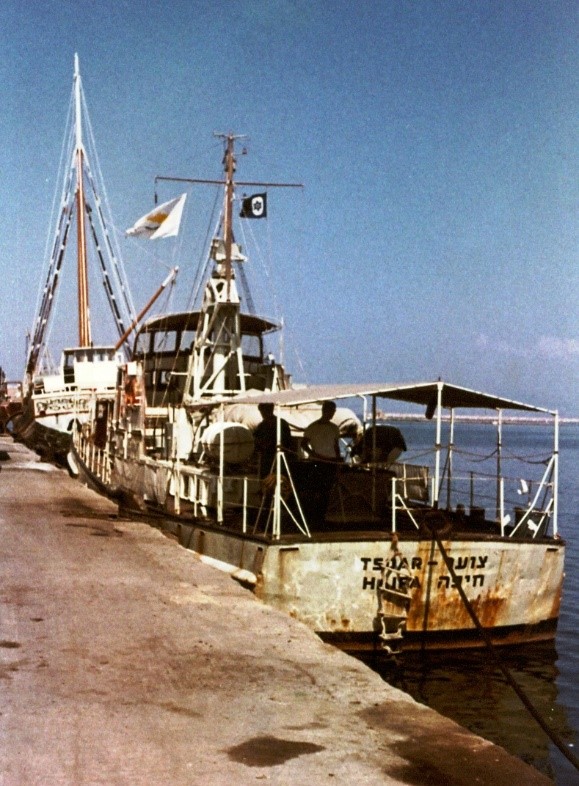
Other than that, the scenery was pretty much similar to what we are used to see at home. Mountains with pine trees, ruins of churches and other old fortified cities, the familiar looks of the coast line. But still, it was new and exciting.
Next port is Rhodes. We envy the beautiful, sleek, well-maintained and manicured yachts; our boat is a far cry in appearance. But we are proud of the horsepower that lies within ours. We rented scooters to visit the cliff were the movie “The Guns of Navarone” was filmed. Really impressive, looks just like in the movie…
Shortly after leaving Rhodes, the sea rose and started to be unpleasant. The crew ran around to batten hatches and secure everything that could move. Quickly it turned to be unbearable to most of the crew. We faced Sea State 7, with waves of 15 feet high and 30 knots wind. Pretty serious. The waves were as high as the bridge, and many times the hull was almost completely submerged, only to come up and out as the wave passed by.
A utensil drawer in the kitchen fell out of its place and so was a carton of fresh eggs. The combination of both created scrambled raw eggs on the kitchen’s floor. Needless to say, all the crewmembers, less three (the Captain Maimon, Sassoni – a seamanship cadet and me), were seasick. They all assumed horizontal positions, as green as the linoleum covering the floor of the closed bridge. They only rose on their knees just in time to stick their heads in a nearby bucket…
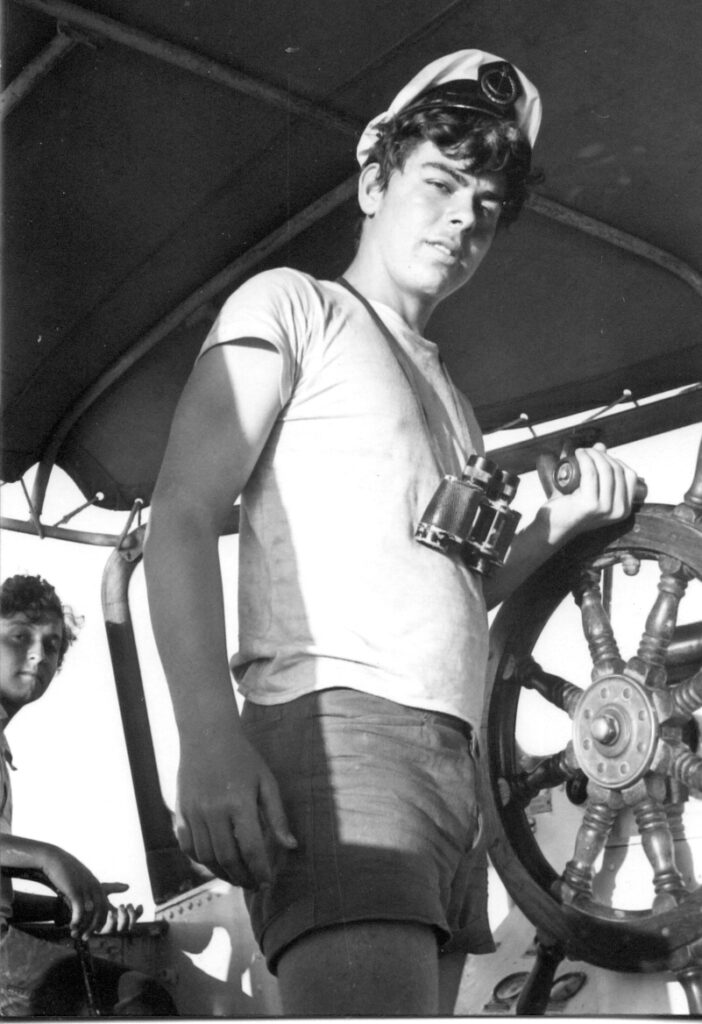
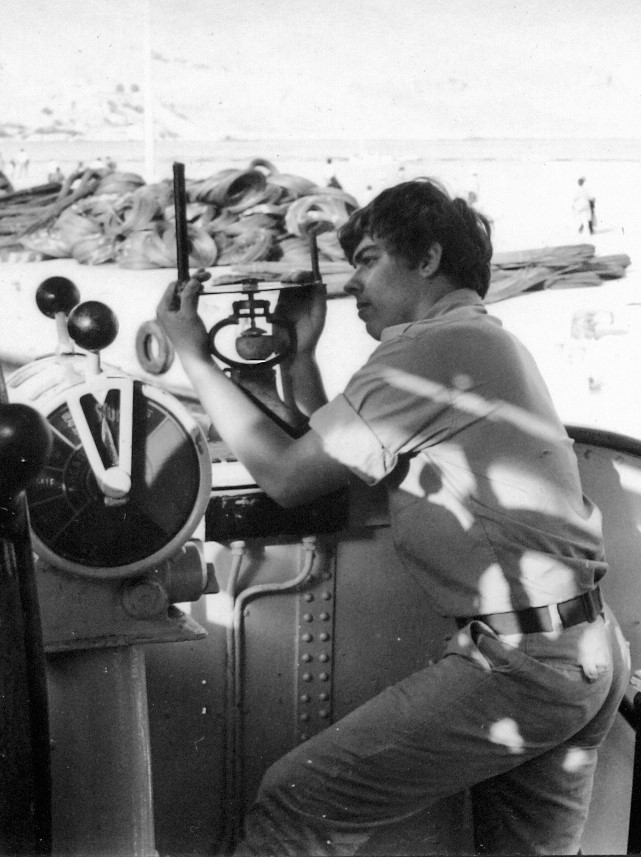
The Radar stopped working, probably due to leaks into its old electronics. We, the two cadets, took turns at the helm (no auto pilot on this old lady), and watching the vitals of the engines. The one that watched the engines also was on the lookout for other boats that shared the same misfortune. The Captain navigated from one lighthouse to the next, each having its own unique flashing sequence. Once we got close to a lighthouse, the captain searched for the next one, and set our course to there.
The boat’s roll was sometimes so hard, that you would lose your footings, and had to hang on to the helm. We were wet to our bones. Luckily, it was summer time, so it wasn’t cold.
This continued for some 20 hours. Then the weather changed for the better, and the sea calmed down. Dead tired, I found a semi-dry blanket and took it down to the engine room. It took me only a few seconds to fall asleep between the two main engines.
We docked in Piraeus, the port city of Athens. We spent most of our stay in Athens itself, visiting the Pantheon, the Acropolis hill and the other must-see attractions. The next day, we headed out, back to the Aegean Sea, this time to the Corinth Canal.
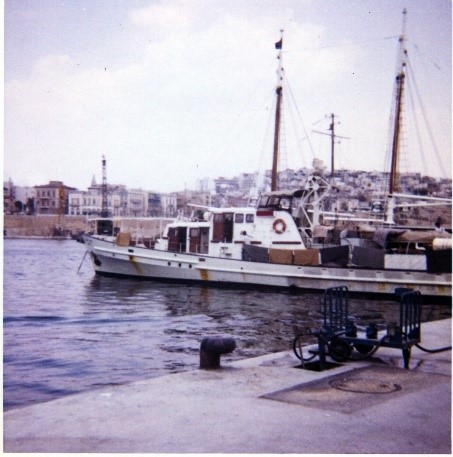
That was really cool, to sail through the narrow pass. Unfortunately, the stress and efforts of the storm did affect me, as I had some fever at that point. It was nothing serious, but still unpleasant. We stopped at Delphi and searched for the Oracle. Despite what we learned in history lessons, there was none to ask about the future of our journey…
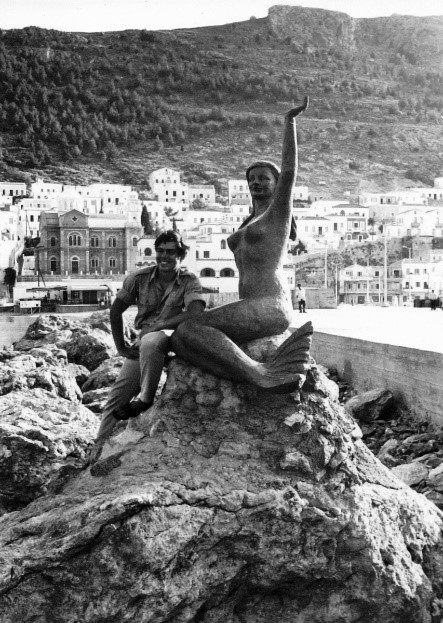
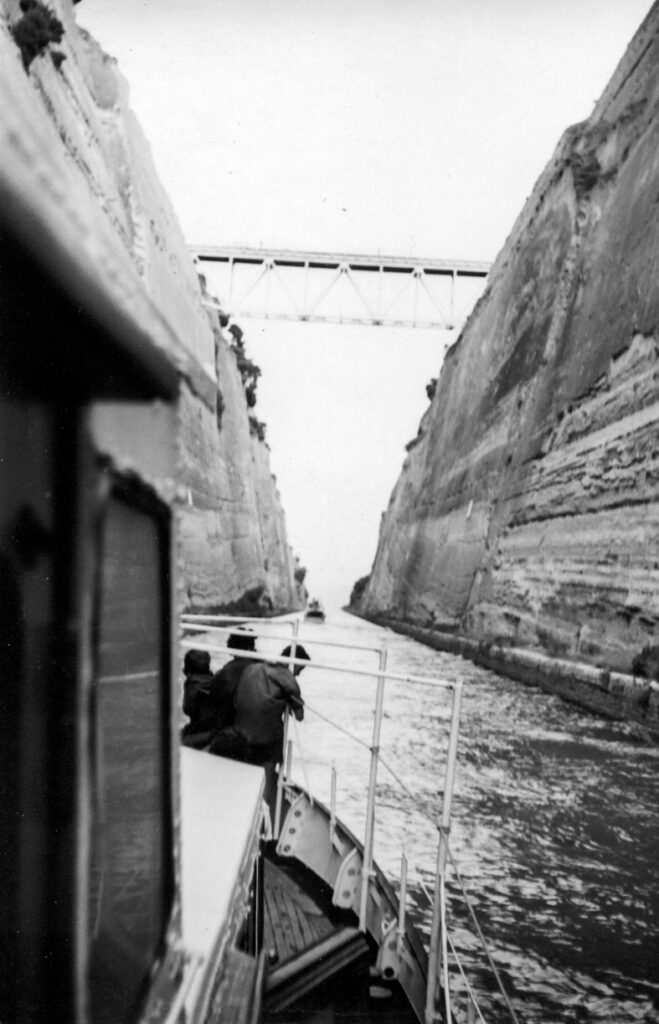
The weather was fine: smooth sea with only small waves and the wind came from behind. We all got into the routine of shifts, work on the deck and so on. Noontime, it is my shift. I did not have to stay in the engine room during my shift because the mechanic of duty was there. On this particular shift the mechanic on duty was my friend Israel Avraham. I just set down to have lunch, when Israel came out in panic, yelling: “fire in the Engine Room!!”
I jumped of my seat and ran up to pull the deck emergency fuel shut-off valves. These valves kill all fuel supply and pressure in the engine room. Grabbing an extinguisher, I stormed into the engine room. No big deal, just a small flame on an electrical cable that consumes the insulation. A short burst off the extinguisher took care of that. Actually, the work that followed to restart the engines was more of a deal than the fire itself. Better be safe than sorry!
The coast line of Home is seen on the horizon. The details become clearer as we get closer. What a good feeling it is to return back home! Last maneuver for this trip, and a final “Stop Engines” command is given.
It was the last voyage of this specific school ship. She had too many problems, and she was too costly to maintain. For me, this first voyage was the culmination of all the character shaping and maturing that I went through during the four years I spent in this school.
